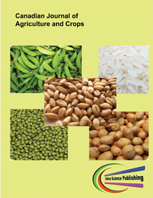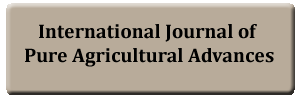Influence of Cooking Methods on Quality Characteristics of Oil Extracted From Atlantic Mackerel
DOI:
https://doi.org/10.20448/803.1.1.30.35Keywords:
Mackerel, Quality characteristics, Fish oil, Cooking method, Chemical analysis.Abstract
The quality characteristics of oil extracted from raw and cooked (boiled, smoked and fried) Atlantic mackerel (Scomber scombrus) were evaluated, in an effort to study the relationship between cooking method and wholesomeness of mackerel oil. Free fatty acid (FFA), a measure of hydrolytic breakdown, ranged from 2.5-2.7% for cooked mackerel versus 2.5% for the uncooked (control); Peroxide value (PV), a measure of oxidative breakdown was higher for the cooked samples particularly for the oil extracted from smoked (9.4 meq/kg) and fried (10.4 meq/kg) mackerel; while measurement of Iodine value (IV) indicate that all samples were highly unsaturated, with the oil from fried mackerel being the least unsaturated. IV of oil from cooked mackerel ranged from 162-188 g I2/100g versus 171 g I2/100g for the control. Findings from this work suggest that cooking led to increase in hydrolytic breakdown (as evidenced by FFA) as well as increase in oxidative breakdown (as evidenced by PV, IV and extinction coefficients K232 and K270). Smoking and frying of mackerel appeared to have the greatest impact on the quality of mackerel oil.


